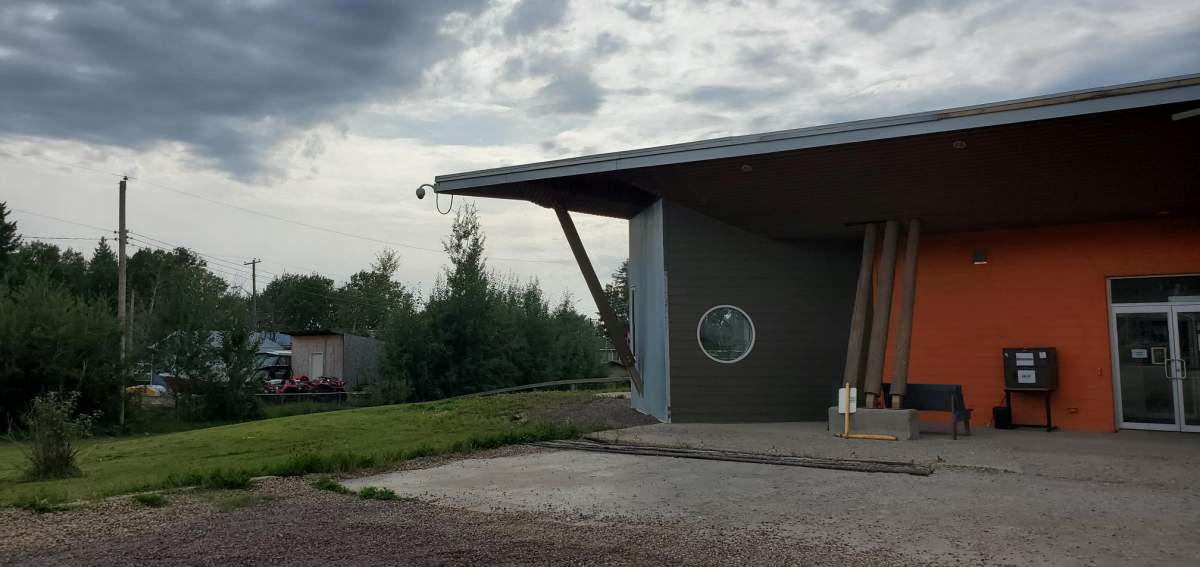In October 2019, leaders in Fort Chipewyan, a hamlet in northern Alberta, raised the alarm about an education crisis at a community meeting.

“The leaders felt that the children of the community weren’t getting the proper education that they deserve,” said Bonnie Fraser, a councillor with the Mikisew Cree First Nation (MCFN).
“There were no high school graduates for — I think it was two years prior.”
One young person made a passionate plea at that meeting, recalled Kerri Ceretzke, director of education for MCFN.
“This has to change,” she remembers him saying. “We need to want to go school.”
In February 2020, the Fort Chipewyan Community School opened its doors. Based out of the vacated Keyano College building, it offers Grade 10 students and older to upgrade courses and finish their high school diploma at their own pace. It also allows for remote learning through modules for students living outside the community.
“You walk in, we welcome you,” Ceretzke, who is also the principal, said. “Whether it’s Sept. 1 or Nov. 15, come on in, and let’s just get started.
“Respect, kindness, those traditional values are our guiding principles when we address education here with the students.”
The school is run in partnership with MCFN, Athabasca Chipewyan First Nation and Fort Chipewyan Métis Association. It’s based on a model being used in northern Alaska, where community members co-teach with certified teachers, Ceretzke explained.
“If you were to look at the staffing structure within our school, we have many, many community members here that are representing Mikisew Cree First Nation, Athabasca Chipewyan First Nation, Fort Chipewyan Métis, and they help us in many of our roles, including tutoring services, admin work, liaison work with the families.

Get daily National news
“We hire local elders and community members to go out on the land. Students participate in credit-based natural resources courses: September moose hunting, winter trapping. Right now, there’s a camp going on that focuses on botany,” said Ceretzke.
It runs all 12 months of the year and includes traditional seasonal camps while offering as much flexibility to students as possible. The community high school operates from 11 a.m. to 4:30 p.m. and has special evening hours for two days of the week.
In June, there were 256 students enrolled. This year, it will celebrate at least 41 graduates.
“The atmosphere, the energy, the talk around education is much more positive,” Ceretzke said. “There’s pride, there’s that identity, it’s community-run, there’s education sovereignty, and I think that makes all the difference.”

Fraser said community leaders were able to pull together and address the issues.
“The impacts it made on the community, the outcome, the (number) of graduates that are coming out of this school, it’s unreal.
“I think Athabasca Delta (Community School, run by the Northland School Division) has never put out that many graduates in one school year,” she added. “Maybe four school years or five school years combined, but not in one.
“This school is not only helping our youth,” Fraser said. “We have a graduate — he’s 60 — that has come back to school to achieve his high school diploma.”
It was the flexibility, connection to traditional culture and support that drew 18-year-old Alyssa Antoine to Fort Chipewyan Community School.
“If I want, here I can learn more about my language, learn more about Dene, the land, the people,” she said.
“It makes me feel proud knowing I can learn and talk to my elders and learn a whole bunch of things that I’ve never learned before: fishing, hunting, all the traditional stuff they got to do in their adolescence and that I can do now that I have the knowledge.”
Alyssa just graduated but plans to upgrade two classes before attending the University of Alberta in fall 2022. She’d like to study psychology.
“I’d like to… perhaps become a psychologist or a therapist and come back to my community and help others.”
Some students, like Alyssa, are interested in post-secondary school or career opportunities, Ceretzke said. But for some of the older students, “it’s unfinished business.”
“It’s the healing aspect. For our 60-year-old grads, survivors of residential school, they want to finish that,” she explained.
“I just really found with the adults, it’s the healing around education.”
Other students, she said, are trying to set an example.
“We have a mother and daughter who are graduating. For the mom, it was role modelling the education for their daughters. Very, very deep reasons.”

Justine Antoine, 30, got a job as the school records administrator. Once she was hired, she immediately enrolled in classes. Justine, who dropped out of school when she was in Grade 11, also graduated this year.
“I was in tears, and it was an amazing moment for our family.”
“I’m a mom of four, so I really have to pull up my socks and show the kids this is what you’ve got to do,” she said. “I really felt motivated to get it done and do it for myself and for my kids… just to know that I accomplished my Grade 12 and to be a role model.”









Comments
Want to discuss? Please read our Commenting Policy first.